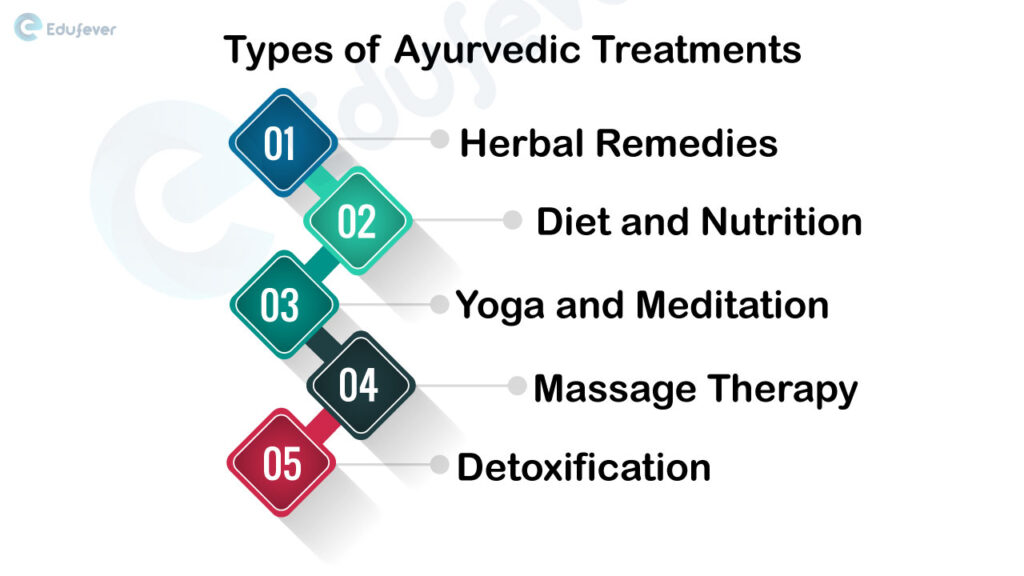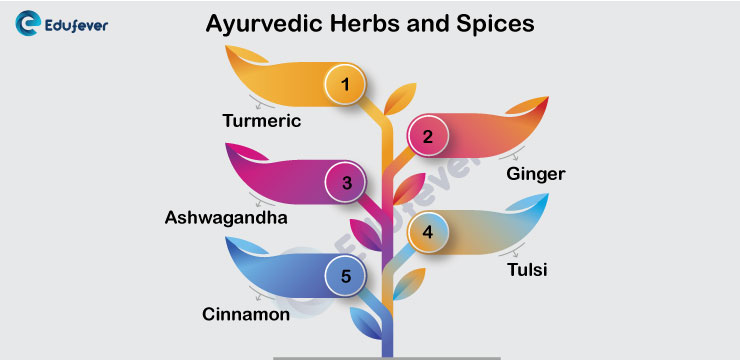Advantages and Disadvantages of Ayurvedic Medicine: Ayurveda has resided in India for ages. People practised Ayurveda as the primary medicinal system though it saw backlash during British colonialism when the modern medicine system was introduced. Ayurveda became a second-class option used primarily by traditional spiritual practitioners and the poor. After Independence, Ayurveda gained popularity, and new schools began to be established.
Even today, Ayurvedic medicines are used by people. During COVID-19, people started taking homemade potions like kadha. Gradually the demand for Ayurvedic doctors is increasing, thus indirectly increasing the job opportunities for BAMS graduates. Through this article, you gain knowledge about the advantages and disadvantages of Ayurvedic medicine.
[Page Index]
Quick Facts
Below is a summary of the advantages and disadvantages of Ayurvedic medicine. Let’s take a look.
| Particulars | Description |
|---|---|
| Types of Doshas | Vata, Pitta, and Kapha |
| Ayurvedic Treatments | Herbal remedies, Diet and nutrition, Yoga and meditation, Massage therapy, Detoxification |
| Ayurvedic Herbs | Turmeric, Ginger, Ashwagandha, Tuland cinnamon among |
| Ayurveda Specialisation | Shalya-chikitsa, Kaayachikitsa, Bhutavidya, Shalakya, Rasayanam |
What is Ayurveda?
Ayurveda is an ancient system of medicine from India that has been used for thousands of years. Instead of using pills, it uses herbs and spices—similar to what you find in your kitchen—to treat illnesses. People in India have relied on Ayurveda for a long time, but its use has decreased with the rise of modern medicine.
Ayurveda focuses on balancing the mind, body, and spirit to stay healthy. It’s not just about curing sickness but also about maintaining overall wellness and strength.
Why Ayurveda?
There are several reasons why Ayurveda is better than other medical systems:
- It brings proximity to nature.
- A personalized package.
- A holistic detoxification therapy.
- Avoid side effects.
Ayurveda Specialisation
- Shalya-chikitsa (Surgery)
- Kaayachikitsa (internal medicine)
- Bhutavidya (psychiatry)
- Shalakya (disease situated above the shoulder)
- Rasayanam (rejuvenation)
How does Ayurveda work?
The mind-body type characterizes every human. In Ayurveda, these primary qualities that govern the body are called “doshas.” There are three doshas, each of which has specific functions based on the elemental forces they are made of. Vata governs movement, Pitta governs digestion, and Kapha governs structure. Each of the Doshas performs specific functions related to the body.
1. VATA
Vata is characterized by dry, cold, light, minute, and movement properties. All movement in the body is due to the properties of Vata. Pain is the characteristic feature of deranged Vata. Some diseases connected to unbalanced Vata are flatulence, gout, rheumatism, etc. Vata is the normal Sanskrit word meaning “air, wind,” and was so understood in pre-modern Sanskrit treatises on Ayurveda. Some modern interpreters prefer not to translate Vata as air, but rather to equate it with a modern metabolic process or substance.
2. PITTA
Pitta represents metabolism characterized by heat, moistness, liquidity, sharpness, and sourness. Its chief quality is heat. Pitta is the energy principle that uses bile to direct digestion and enhance metabolism. Unbalanced pitta is primarily characterized by body heat, burning sensation, and redness. Pitta is the normal Sanskrit word meaning “bile.” It is originally related to the Sanskrit word pita, “yellow.”
3. KAPHA
Kapha is the water element which is a combination of earth and water. It is distinguished by heaviness, coldness, tenderness, softness, slowness, lubrication, and the carrier of nutrients. It is the nourishing element of the body. All soft organs are made by Kapha and play an important role in the perception of taste, together with nourishment and lubrication. Kapha is the normal Sanskrit word meaning phlegm.

Advantages of Ayurveda
Ayurvedic medicine offers many benefits for individuals seeking to restore balance and harmony between the body, mind, and spirit. It is a holistic system of healing that considers the individual’s physical, emotional, and spiritual needs. By addressing the root cause of disease, ayurvedic medicine can help to prevent and treat a wide range of health conditions, including chronic illnesses such as diabetes, arthritis, hypertension, and asthma. The main benefits of Ayurvedic medicine include the following:
- Improved overall health and well-being: By restoring balance and harmony between the body, mind, and spirit, Ayurvedic medicine can help to improve overall health and well-being.
- Relief from symptoms of chronic illnesses: By addressing the root cause, Ayurvedic medicine can help reduce symptoms and improve quality of life.
- Prevention of disease: Ayurvedic medicine can help to prevent disease by promoting healthy lifestyle habits and restoring balance and harmony between the body, mind, and spirit.
- Improved digestion: Ayurvedic medicine promotes healthy digestion by focusing on dietary and lifestyle habits that support the digestive system.
- Stress relief: Ayurvedic medicine can help to reduce stress and anxiety by focusing on relaxation techniques, such as yoga and meditation.

Disadvantages of Ayurveda
Despite its many benefits, there are a few disadvantages to Ayurvedic medicine that you should consider before trying it. Some ayurvedic treatments can be expensive and may not be covered by insurance. Furthermore, some herbs used in Ayurvedic medicine have not been rigorously tested for safety or effectiveness. For this reason, it’s important to speak to a qualified practitioner before taking any herbal treatments. Finally, some ayurvedic treatments can take a while to show results and require dedication to achieve the desired outcome. All of these factors should be considered before diving headfirst into Ayurvedic medicine. The following are some disadvantages of Ayurvedic medicine:
- Ayurveda is pseudo-science: Ayurveda is passed on from generation to generation, which raises suspicion regarding its treatment. It is pseudoscience due to the lack of evidence-based testing for its numerous herbal medicines.
- No immediate relief: One of the reasons that people use Allopathy over Ayurveda is immediate relief. Ayurveda does not provide immediate relief but very slowly.
- May not cure at the worst stage of diseases: Despite its natural healing, it does not guarantee a cure at the last/ worst stage of the disease, which is bad news for people suffering from these diseases.
- Side effects from herbs: Due to unknown facts about herbs, there are some side effects, as there are no guidelines for homemade herbal remedies. There have been cases where there are high levels of toxic metals in the herbs, which could lead to poisoning or more severe health issues later on. Taking high doses of Ayurvedic herbs for an extended period can lead to side effects like nausea, abdominal discomfort, vomiting, allergic rash etc.
- Prevention not for cure: Ayurveda is good for prevention, not for cure. So it’s still best to get a doctor’s opinion and also make sure that the doctor knows what herbs you are taking so they can best help you through your illness.
Types of Ayurvedic Treatments
Ayurvedic medicine offers a variety of treatments for individuals seeking to restore balance and harmony between the body, mind, and spirit. These treatments include:
- Herbal remedies: Herbal remedies address the root cause of disease and restore balance and harmony between the body, mind, and spirit.
- Diet and nutrition: Ayurvedic medicine promotes a healthy diet and lifestyle tailored to the individual’s needs.
- Yoga and meditation: Yoga and meditation reduce stress and improve overall health and well-being.
- Massage therapy: Massage therapy is used to reduce stress, improve circulation and promote relaxation.
- Detoxification: Detoxification cleans the body and promotes overall health and well-being.

Ayurvedic Herbs and Spices
Ayurvedic medicine uses a variety of herbs and spices to restore balance and harmony between the body, mind, and spirit. These herbs and spices have been used for centuries to treat various health conditions, including chronic illnesses such as diabetes, arthritis, hypertension, and asthma. Some of the most commonly used Ayurvedic herbs and spices include:
- Turmeric: Turmeric is a herb that has anti-inflammatory and antioxidant properties. It is commonly used to reduce inflammation and pain, as well as to treat digestive disorders.
- Ginger: Ginger is a herb that has anti-inflammatory and antioxidant properties. It is commonly used to reduce inflammation and pain, as well as to treat digestive disorders.
- Ashwagandha: Ashwagandha is a herb that has anti-inflammatory and antioxidant properties. It is commonly used to reduce inflammation and pain, as well as to treat stress and anxiety.
- Tulsi: Tulsi is a herb that has anti-inflammatory and antioxidant properties. It is commonly used to reduce inflammation and pain, as well as to treat respiratory disorders.
- Cinnamon: Cinnamon is a herb that has anti-inflammatory and antioxidant properties. It is commonly used to reduce inflammation and pain, as well as to treat digestive disorders.

Ayurveda Vs Allopathy
There is a difference between Ayurveda and allopathy medicines. Ayurveda heals diseases from the root but does not provide instant relief, whereas Allopathy does provide instant relief but does have side effects. Below we have mentioned some of the differences between the two.
| Basis | Ayurveda | Allopathy |
|---|---|---|
| Form | Ayurveda is an ancient form of alternative medicine course that involves the treatment of diseases with the help of herbs, vegetables, and minerals, followed by wholesome betterment of the human body. | Allopathy involves curing ailments with clinically tested drugs for better results. |
| Acceptance | Ayurveda does not accept or include Allopathic treatments. | Allopathy can easily accept Ayurvedic forms of medicine if they pass all required clinical trials performed by professionals. |
| Side Effects | Ayurvedic medicine has no side effects. | Allopathic medication does have side effects. |
| Effectiveness in an Emergency | Ayurvedic medicine, though natural, takes a bit longer to prove its worth and can rarely be used in emergencies. | Allopathic medication is highly effective in an emergency as it gives faster results. |

